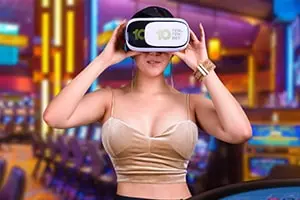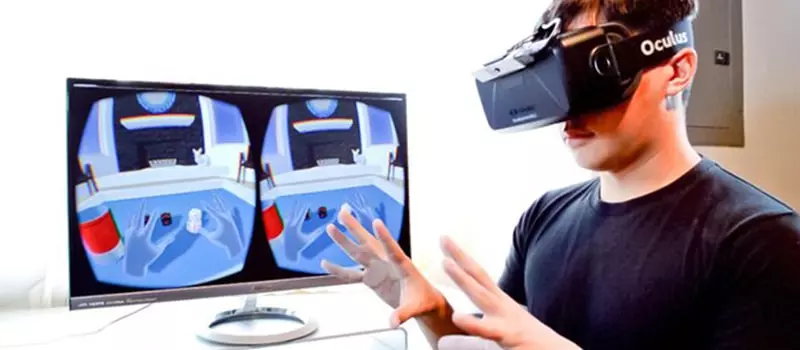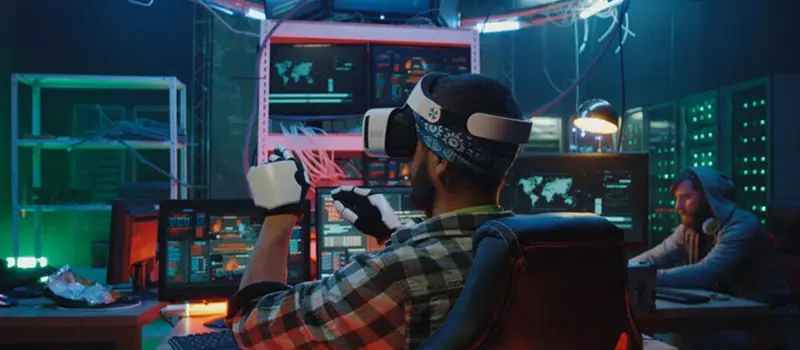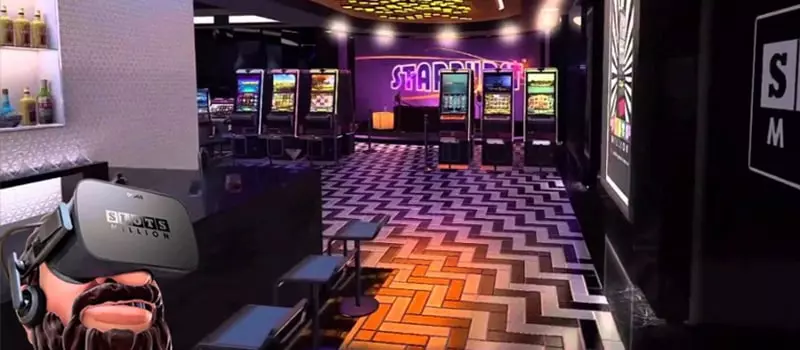 The gambling industry has undergone drastic changes over the years. In the past, people had to travel to the nearest land-based gambling establishment to play their favourite casino games. The advent of technology has been, and still is, the driving force behind the industry’s evolution. In the mid-1990s, the Internet exploded in popularity, leading to the exponential growth of the online gambling sector.
The gambling industry has undergone drastic changes over the years. In the past, people had to travel to the nearest land-based gambling establishment to play their favourite casino games. The advent of technology has been, and still is, the driving force behind the industry’s evolution. In the mid-1990s, the Internet exploded in popularity, leading to the exponential growth of the online gambling sector.
In the beginning, players could choose from a limited number of gambling sites. However, running a web-based casino proved extremely lucrative, so more and more entrepreneurs decided to dip their toes into the market and launch virtual casinos. Today, the industry is saturated with online casinos, and new sites spring up every day. To stand out from competitors, online casino operators offer generous bonuses.
Keeping their fingers on the pulse of the latest technology trends is also important for successful casino operators. Now, it seems that virtual reality (VR) is making waves in the online gambling industry. Even though this technology is relatively new, it has already found a place in various fields, including training. The gambling industry has also successfully implemented virtual reality in an attempt to attract new players.
Virtual Reality Explained
Perhaps many people associate virtual reality with sci-fi films and gamers wearing huge goggles. If we had to define virtual reality, we would say that it is a three-dimensional artificial environment that replicates a realistic experience and shuts out the real world. Virtual reality is impossible without specialised equipment, namely a headset. The price of the headset usually determines its quality.
Oculus Rift is a high-end VR headset, but it is not cheap. A basic set without extras costs approximately £400. However, if you are a casino player, you will certainly need a headset to play VR games. Other high-quality VR headsets include Samsung Gear VR, Google Cardboard, Google Daydream View and HTC Vive VR. The companies at the forefront of VR development are Samsung, Google, Facebook, TCL and HTC.

The Technology Behind Virtual Reality
 It is fascinating to examine exactly how VR immerses people in an entirely different world while they remain seated on the sofa in their living rooms. The various headset types do not differ greatly in size and shape. However, the way they project images varies considerably between models. In a nutshell, VR headsets are head-mounted displays. Headsets need to be connected to a console or computer to transmit video.
It is fascinating to examine exactly how VR immerses people in an entirely different world while they remain seated on the sofa in their living rooms. The various headset types do not differ greatly in size and shape. However, the way they project images varies considerably between models. In a nutshell, VR headsets are head-mounted displays. Headsets need to be connected to a console or computer to transmit video.
VR headsets are often referred to as goggles because they use two LCDs (one per eye), pixels and lenses placed between the eyes. The lenses change the angle from which 2D images are projected to replicate the way our eyes see the world. An important specification of VR headsets is their field of view; a wider field provides a more immersive experience.
Virtual Reality and Online Gambling
A few gambling sites have already embraced virtual reality technology. Although the choice is still limited, the virtual casinos that offer VR gaming options are licensed and reputable. However, industry insiders believe it will not be long before more VR online casinos appear on the scene. With a growing number of people purchasing VR headsets and accessories, such casinos are sure to appeal to a wide audience. The global VR gambling industry is set to grow from $0.4 billion in 2017 to $2.4 billion by 2024.
Virtual casinos are expected to attract both gamers and players over the age of 30. Interestingly, VR casinos offer more than just 3D animations. They provide players with a lifelike casino experience by welcoming them onto the casino floor. VR casinos allow players to interact with each other via a live-chat feature. Some online bookmakers are also eyeing the opportunity to implement VR and offer a one-of-a-kind betting experience.
Many people believe that augmented reality and virtual reality denote the same thing. However, they are distinct concepts. Augmented reality overlays virtual images onto the real world and does not require special equipment. The most notable example of a game based on augmented reality is Pokémon Go. Virtual reality, on the other hand, aims to immerse people in an artificial experience by completely excluding the real world.
Despite the many advantages VR casinos offer, avid casino fans are likely to spend more time and money gambling. This could affect vulnerable players and young people, increasing the risk of problem gambling.

Virtual Reality Casinos
The web-based casino SlotsMillion will always be remembered as the world’s first virtual-reality gambling site. It was launched in 2014 by Alea Gaming Group. In 2021, the interactive casino changed ownership and now operates under the umbrella of the Malta-based company SLTM Ltd. The gambling site carries a stamp of approval from the Malta Gaming Authority and the UK Gambling Commission.
Its gaming portfolio features titles from reputable software companies such as Play’n GO, NetEnt, Playtech, Microgaming, Quickspin, Pragmatic Play, Yggdrasil, Wazdan and others. SlotsMillion is home to over 3,000 slots and table games compatible with various portable devices. It is important to note that not all games are available in virtual reality.
To add extra excitement to the overall experience, you can see other players wandering around the casino, but none of them will be able to view your screen. Casino devotees can play VR games in demo mode.

Playing VR Casino Games
As we have already hinted, VR is still in its early stages. Hence, it is hardly surprising that the number of available VR casino games is limited. Nevertheless, casino enthusiasts are treated to some nail-biting slots and table games. The tech-savvy software company NetEnt was the first to introduce a VR slot – Gonzo’s Quest VR.
To play VR games, casino aficionados need a VR headset. In addition, the PC or laptop should meet certain technical requirements that depend on the type of goggles you intend to use. In 2020, Oculus Rift officially announced that it would stop supporting Windows 7 and 8.1. At the moment, Oculus Rift requires Windows 10. Check the table below to learn more about the technical specs your PC should have to support VR casino games with an Oculus Rift headset.
| Component | Recommended Specs | Minimum Specs |
|---|---|---|
| Processor | Intel i5-4590 / AMD Ryzen 5 1500X or greater | Intel i3-6100 / AMD Ryzen 3 1200, FX4350 or greater |
| Graphics Card | NVIDIA GTX 1060 / AMD Radeon RX 480 or greater | NVIDIA GTX 1050 Ti / AMD Radeon RX 470 or greater |
| Alternative Graphics Card | NVIDIA GTX 970 / AMD Radeon R9 290 or greater | NVIDIA GTX 960 4GB / AMD Radeon R9 290 or greater |
| Memory | 8GB+ RAM | 8GB+ RAM |
| Operating System | Windows 10 | Windows 10 |
| USB Ports Rift | 3× USB 3.0 ports, plus 1× USB 2.0 port | 1× USB 3.0 port, plus 2× USB 2.0 ports |
| Video Output | Compatible HDMI 1.3 video output | Compatible HDMI 1.3 video output |
| Source: support.oculus.com | ||

Virtual Reality and the Future of Online Gambling
Virtual reality is a growing trend that has taken the online gambling world by storm. Even though the technology is far from mature, it has already attracted the attention of thousands of casino fans. Industry insiders believe that virtual reality is set to drive the online gambling industry to a whole new level. It facilitates better interaction between players and offers a fully immersive environment. Moreover, it will keep slot fans on the edge of their seats, as VR technology can provide an authentic feel.
A large number of web-based casinos are expected to adopt virtual reality to attract new sign-ups and retain existing patrons. Software companies are likely to release many more virtual-reality casino games to meet the needs of every type of player. Of course, technology will continue to develop, pushing the boundaries of the industry even further. We believe that the price of VR headsets will drop soon as the technology becomes more mainstream.








